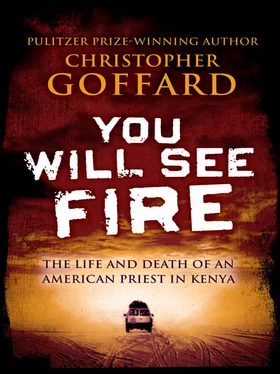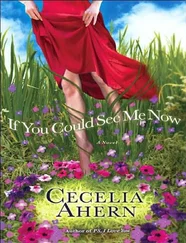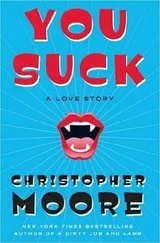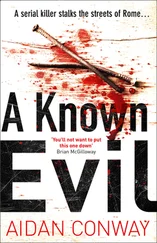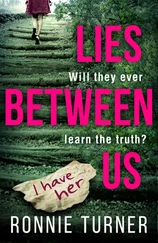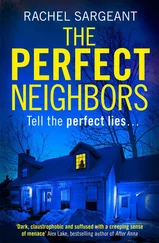IN SEPTEMBER OF that year, in a town called Kikuyu in the countryside about fifteen miles northwest of the capital, a twenty-year-old student named Charles Mbuthi Gathenji stood beside the hacked and beaten body of his dying father. Hours before, the young Gathenji had been pulled out of his Nairobi classroom by a summons to the head-master’s office. There was a phone call waiting for him—a nurse from Kikuyu Hospital saying, “Your father has been admitted.” If he received further explanation in that conversation, he wouldn’t remember it later. He didn’t need much explanation anyway: The attack on his father was no surprise. He rushed from the school and found a bus. He climbed aboard, squeezing between a crush of bodies. He would remember standing for the interminable hour-long drive over the tarmac, jostled by bodies, thinking, I hope I will meet him alive. He would remember the kindness of the bus driver, a devout Quaker, who seemed to know exactly what had happened when he explained where he was going, and why. It was a terrible time for Christians.
THE ATTACK HAD its origins deep in Kenya’s bloody preindependence history Конец ознакомительного фрагмента. Текст предоставлен ООО «ЛитРес». Прочитайте эту книгу целиком, купив полную легальную версию на ЛитРес. Безопасно оплатить книгу можно банковской картой Visa, MasterCard, Maestro, со счета мобильного телефона, с платежного терминала, в салоне МТС или Связной, через PayPal, WebMoney, Яндекс.Деньги, QIWI Кошелек, бонусными картами или другим удобным Вам способом.
, in the green and war-racked countryside in which Gathenji had grown up. He was the second-oldest boy in a family of seven children. His immediate family, poor and landless Kikuyus, lived north of the capital in a mud-walled house roofed with corrugated iron in what the British euphemistically called a “protected village,” a place he later regarded as a modified concentration camp. Ostensibly, they were being protected from the Mau Mau Конец ознакомительного фрагмента. Текст предоставлен ООО «ЛитРес». Прочитайте эту книгу целиком, купив полную легальную версию на ЛитРес. Безопасно оплатить книгу можно банковской картой Visa, MasterCard, Maestro, со счета мобильного телефона, с платежного терминала, в салоне МТС или Связной, через PayPal, WebMoney, Яндекс.Деньги, QIWI Кошелек, бонусными картами или другим удобным Вам способом.
, Kikuyu rebels whose mass peasant insurgency was then at its height. White settlers had confiscated tens of thousands of acres in the Kikuyu heartland, and the rebellion’s rallying cry was ithaka na wiyathi, or “land and freedom.” Its tactics—machete attacks, arson raids, assassinations, decapitations—inspired terror even among sympathizers.
Gathenji had been three years old, in October 1952, when the colonial government declared a state of emergency. The British had responded to the rebellion Конец ознакомительного фрагмента. Текст предоставлен ООО «ЛитРес». Прочитайте эту книгу целиком, купив полную легальную версию на ЛитРес. Безопасно оплатить книгу можно банковской картой Visa, MasterCard, Maestro, со счета мобильного телефона, с платежного терминала, в салоне МТС или Связной, через PayPal, WebMoney, Яндекс.Деньги, QIWI Кошелек, бонусными картами или другим удобным Вам способом.
by forcing most of the Kikuyu population into barbwire-enclosed camps and villages like this one, with its encircling spike-filled moat, one entrance and one exit. A cadre of Home Guards—Africans loyal to the Crown who had been given rifles and uniforms—policed the premises, collected taxes, and inspected the despised dog tag–like identity cards, called kipandes, that all adults were made to wear around their necks. The guards, with their berets, long black trench coats, khaki shorts, and heavy black boots, were remote and fearsome figures with a reputation for casual cruelty, more loathed than the British soldiers themselves. Their whistles would pierce the air before dawn; Gathenji’s parents and other adults would be herded off to perform compulsory “communal work,” digging ditches and clearing brush on the surrounding European farms.
Gathenji watched them beat anyone suspected of Mau Mau sympathies, and he watched them whip old people who were not quick enough in answering the whistle. Once, he was whipped himself after attempting to walk to school during a siege. Around their homes, villagers were forbidden from erecting fences or growing thickets that might impede the guards’ view as they patrolled the pathways between the long, straight rows of huts.
The village was structurally divided between the “Royals”—those seen as sympathetic to the government, like Gathenji’s immediate family—and Kikuyus deemed sympathetic to the insurrection, a group that included Gathenji’s paternal grandmother, a hard-eyed, slender woman clad in beaded necklaces and traditionalist wrappings and ornaments. Between the groups, there was always tension; their huts faced one another across a clear path. Now and then, boys from the other side pelted Gathenji’s hut with stones and chanted songs depicting his family as traitors.
Sometimes, during insurgent raids on nearby villages, Gathenji could hear the screams and smell the smoke, and the gates of his village would close, the guards stationed in a protective ring. Sometimes the British troops, known as “Johnnies,” poured into the village with their rifles, hunting for rebels. It was a childhood pervaded by fear.
If you were a Kikuyu boy growing up in a protected village in the 1950s, you knew certain things in the marrow.
You knew not to talk to the guards; if your people saw, you would be made to give explanations. You knew not to talk to the few white people you brushed past at the markets outside the village, or the ones you saw rumbling down the roads in their Land Rovers and Bedfords; they were armed, and any of them could do anything to you. You knew not to look in their eyes and draw attention to yourself. If possible, you disappeared.
If white people asked you a direct question, you knew to answer as briefly as possible and then shut up, to turn your face into a mask and your words into riddles, and never—never—to volunteer information. In many cases, your lingering distrust of white people would remain ineradicable even half a century later, and you would find yourself weighing your words carefully around them. You knew not to take shortcuts across the European farms, because you’d heard stories of other kids being shot as trespassers. You knew not to confide in the blacks who worked as field hands and domestic servants at those farms, because their allegiances were in doubt from every side: They might pass information about your family on to the whites, or they might be secret Mau Maus.
Above all, you were made to understand that talk was dangerous. You knew this at a cellular level, as law so universal and mundane that you couldn’t even recall when you had first learned it, in the same way you had always known that the gigantic armor-plated ants known as siafu would draw blood if your bare feet landed in their nest for more than a few seconds.
Читать дальше
